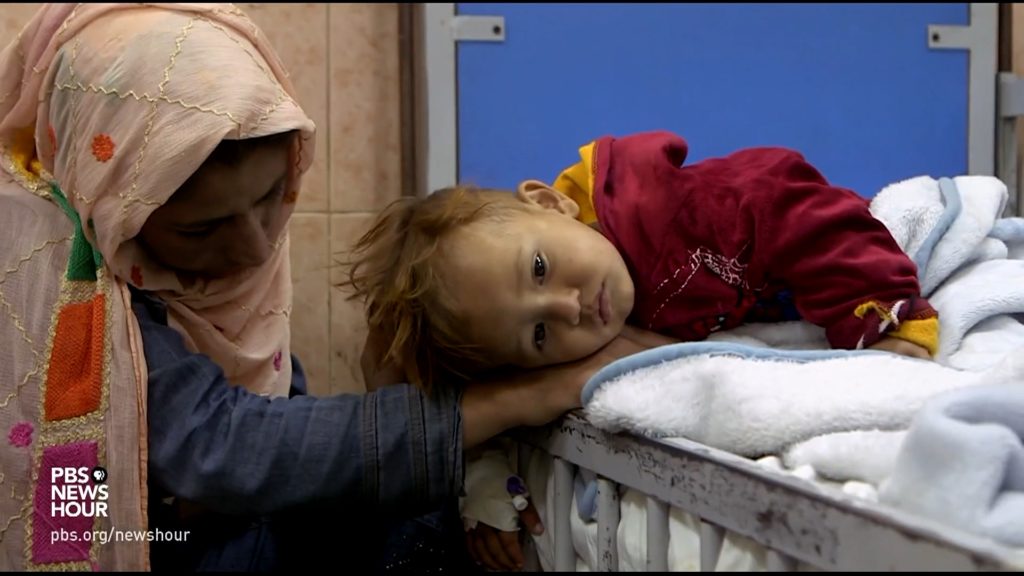Jane Ferguson:
On the day we visited, there were only a few people, one of them a child harvesting, a little saffron.
The farmer has not planted this year’s crop of wheat yet. The ground is simply too hard without rainfall. In the nearby city of Herat, it is clear the scenes in Kabul’s hospitals are repeated across the country. Dangerously wasted and thin babies are carried into the main hospital.
Doctors Without Borders staff and fund the malnutrition ward, so these children will get some milk and care. But it’s temporary. The homes these children came from remain blighted by poverty.
Mahbabin brought in her only surviving twin baby. At 6 months old, she should not be this small. “We don’t have enough food. I’m not able to breast feed,” she tells me. “We feed her with formula, but I cannot afford it.”
Few in this country can afford much more right now than the bare essentials. Millions cannot manage even that. As the world watches the fallout of Afghanistan’s sudden collapse, the failure to build a sustainable, functioning state in the two decades since the 2001 invasion have never been more stark.













































